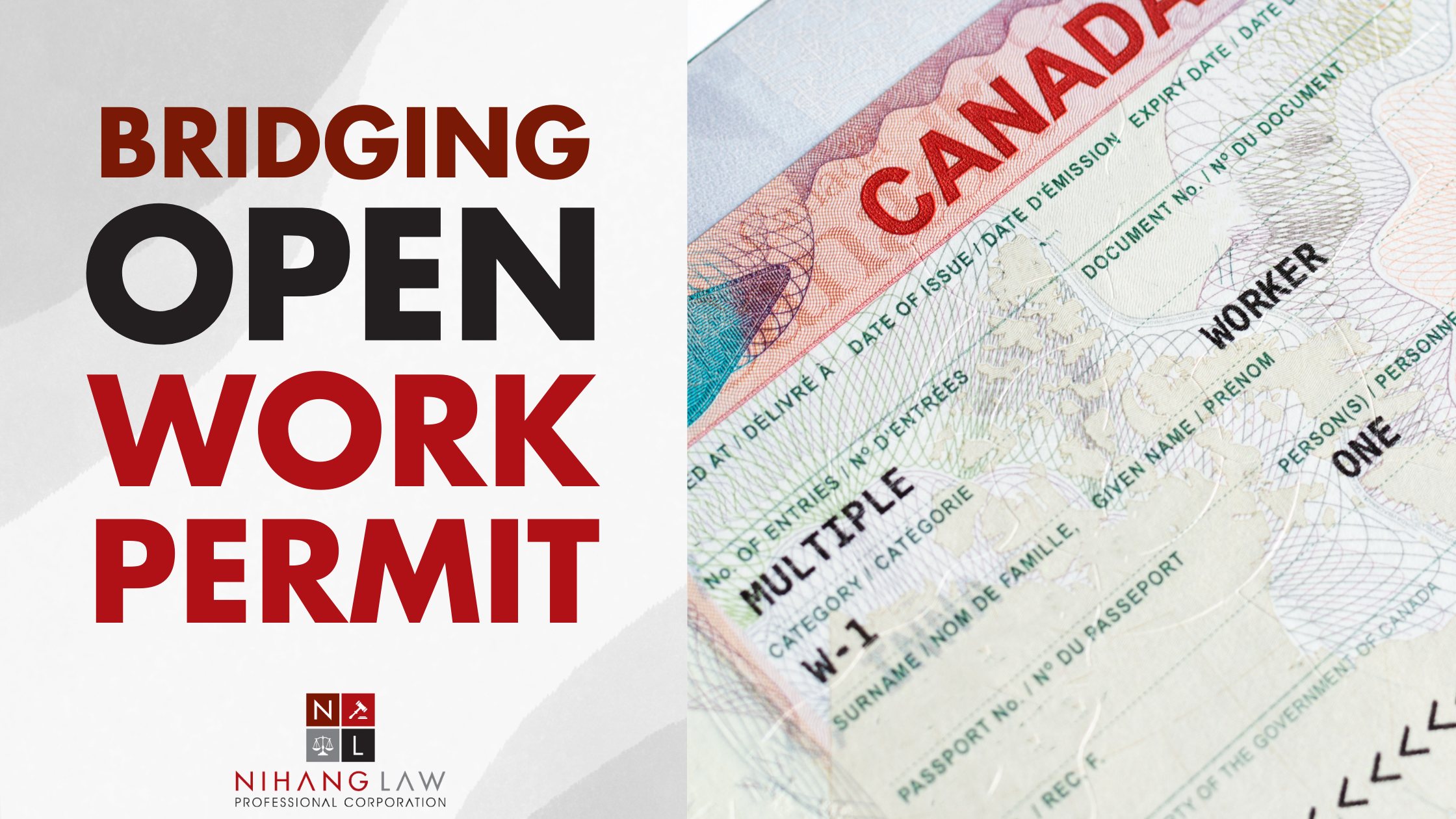
23rd July 2024BY Nihang Law
Everything You Need to Know About the Bridging Open Work Permit
The Bridging Open Work Permit (BOWP) allows permanent resident applicants to continue working in Canada while waiting for the results of their permanent residency applications.
Only those who have submitted a Permanent Residency application and have a valid work permit are eligible to apply for a Bridging Open Work Permit.
The applicant can continue working in Canada under a maintained status (formerly known as implied status) while they wait for a decision, in case their current work permit expires, before receiving the result of their Permanent Residency application.
Bridging Open Work Permit Eligibility Requirements
Be Present in Canada
You must be in Canada to submit your BOWP application. You can leave Canada after submission, but you will not be eligible to work until your new permit is approved upon your return.
Valid Work Permit
Your work permit must be valid, or you must have maintained status as a worker, which means you have applied for an extension of your current temporary resident status and are awaiting the results.
Eligible Classes
Also, applicants must fall under the following classes to be eligible to apply for the BOWP:
- Federal Skilled Worker Class (FSWC)
- Canadian Experience Class (CEC)
- Federal Skilled Trades Class (FSTC)
- Caring for Children Class or Caring for people with high medical needs class before June 18, 2019
- Provincial Nominee Program (PNP) for applicants for whom there are no employer restrictions on nominations
- Agri-Food Pilot (AFP)
- Quebec Skilled Worker Class (QSWC)
Permanent Residence Application Completeness Check
Your Application for Permanent Residence (APR) must be complete and have passed the completeness check under one of these programs:
- Federal Skilled Worker Class (FSWC)
- Canadian Experience Class (CEC)
- Federal Skilled Trades Class (FSTC)
- Provincial Nominee Program (where the applicant qualifies for the provincial or territorial Express Entry stream)
For the Quebec Skilled Worker Class (QSWC), an applicant must have passed the section R10 completeness check.
For the Caring for Children class or Caring for people with high medical needs, Agri-Food Pilot (AFP), and those unqualified for Express Entry under the Provincial Nominee Program (PNP), the applicant must have received a letter confirming that their APR has been approved.
Cost of a Bridging Open Work Permit
A Bridging Open Work Permit costs $255 CAD, which includes $155 CAD for the processing fee and $100 CAD for the open work permit holder fee.
Validity Period of a Bridging Open Work Permit
A Bridging Open Work Permit is typically valid for up to 24 months. If the permanent residence application extends past this period, you can receive an extension of up to 12 months. However, a BOWP cannot be issued beyond the validity of an applicant’s passport.
Processing Time
The typical processing time for a BOWP is three to four months.
Spouses/Common-Law Partners of Bridging Open Work Permit Applicants
Spouses or common-law partners of BOWP applicants are also eligible to apply for an open work permit in Canada simultaneously with the principal applicant.
To be eligible, the BOWP should be valid for more than six months. The requirements for spouses/common-law partners depend on the program under which the principal applicant applied:
- FSWC Program: The principal applicant’s job should be considered “skilled,” falling within National Occupational Classification (NOC) skill levels 0, A, or B.
- PNP Applicants: The spouse/common-law partner is eligible for a work permit for the same period as the principal PNP applicant, regardless of the occupation’s skill level.
- FSTC Applicants: The principal applicant’s job should be under NOC skill level B.
- CEC Applicants: The principal CEC applicant can have any occupation, regardless of NOC skill level.
Get In Touch With Nihang Law
If you have any questions or need assistance with your Bridging Open Work Permit application in Toronto, Nihang Law’s immigration lawyers are here to help and guide you through the entire process. We offer personalized consultations to guide you through the entire process, ensuring that you understand all the requirements and steps involved.
We invite you to contact us for more information or to schedule a consultation. Email us at info@nihanglaw.ca or call (416) 321-0353.
Information from this article is as of June 20, 2024, via IRCC.
Thank you for reading this post, don't forget to subscribe!



